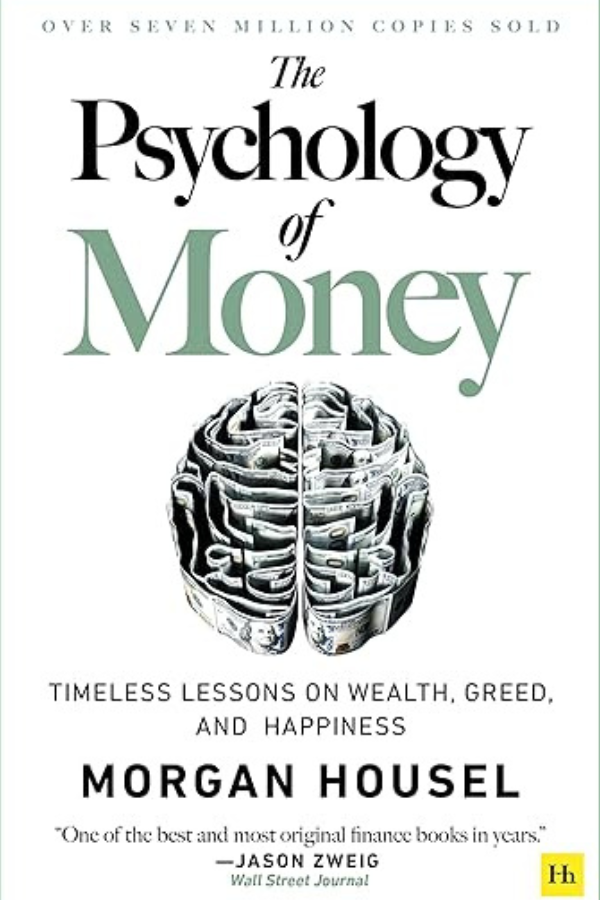The Psychology of Money
by Morgan Housel
Publisher: Harriman House
Publication Date: September 8, 2020
Pages: 256
Format: Hardcover / Kindle / Paperback / Audiobook
Language: English
Genre: Finance / Non-fiction / Investor Psychology
Amazon Rating:
4.7/5 (60,986)
Goodreads Rating:
4.3/5 (263,036)
"Spending money to show people how much money you have is the fastest way to have less money."
Synopsis
Morgan Housel’s The Psychology of Money is a refreshingly honest and highly readable book that flips traditional finance on its head. Instead of teaching formulas and tactics, it focuses on behavior: how we think about risk, wealth, greed, luck, and fear. Through 20 short essays, Housel makes one thing clear: financial success isn’t about IQ. It’s about emotional control, patience, and perspective.
Quality of Writing and Style
Housel writes like a good friend who’s been around the block. The tone is casual but insightful, and he doesn’t waste a word. Each chapter is short, punchy, and story driven. No graphs, no jargon, just sharp, clear ideas. It’s one of the most accessible finance books I’ve ever read, without ever feeling dumbed down. You can read it in an afternoon, but you’ll probably end up highlighting half the book.
Themes and Analysis
The book zeroes in on the emotional and psychological traps that sabotage even the smartest investors: overconfidence, envy, short term thinking, and the inability to sit still. Housel argues that personal finance is deeply personal. What works for one person may be totally wrong for someone else. He also highlights the role of luck, randomness, and survivorship bias, reminding us that the stories we celebrate are often outliers. Above all, he pushes for humility and long term thinking.
Strengths and Weaknesses
The biggest strength? It’s brutally simple. Housel distills complex truths into memorable ideas and never tries to impress with complexity. The downside? If you’re looking for technical strategies or asset allocation frameworks, this isn’t that kind of book. Some seasoned readers may find parts obvious, but that’s also the point: we all know what to do, but few actually do it.
Audience and Recommendation
This is for anyone who wants to get better with money, from first time investors to seasoned professionals who need a behavioral reset. It’s perfect for people tired of financial advice that assumes we’re robots. It belongs on every personal finance shelf, right next to The Millionaire Next Door and Rich Dad Poor Dad. If you want formulas, skip it. If you want clarity, read it.
Personal Reflection and Conclusion
The Psychology of Money reminded me that doing well with money isn’t about knowing more, it’s about making fewer dumb decisions over time. It’s not technical, it’s timeless. I’ve read hundreds of finance books, and this one hit harder than most. Because it tells you the truth most don’t: your brain is your greatest financial asset—and your greatest liability.
My Rating: 9.5/10
A modern classic. Smart, relatable, and full of wisdom you’ll actually remember. Required reading for anyone who touches money, which is everyone.
If this spoke to you, check out The Millionaire Next Door, The Little Book of Common Sense Investing, or Thinking, Fast and Slow by Daniel Kahneman.

 X
X